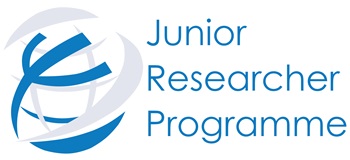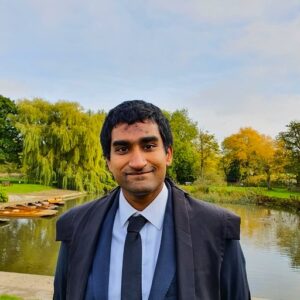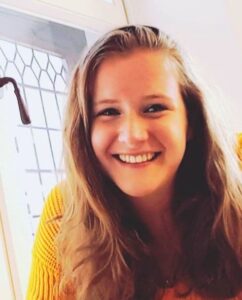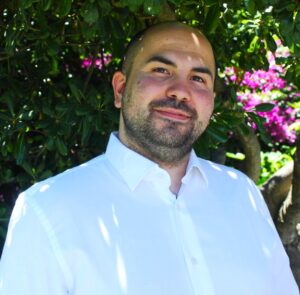The 2023 jSchool
Following the success of previous jSchools, jSchool 2023 will return to the Certosa di Pontignano in Siena, Italy from the 31st July to the 6th August. Students will get the chance to kick-off their group research studies, supported by their Research Supervisors and JRP Team Members, as well as hopefully enjoying sunny Tuscany.
Applications are closed!
jSchool offers the chance to gain valuable experience in designing cross-cultural research in small groups under supervision of early-career researchers. The event is a platform for psychology students to conduct research in an international setting and in their field of interest, with the aim of producing meaningful insights suitable for publication in scientific journals.
Theme
The theme of this jSchool is Biased beliefs: The psychology of irrationality and its consequences. This theme was carefully selected to allow jSchool participants to apply their skills to a diverse range of pressing psychological challenges and research areas.
Dates & Format
This year’s jSchool will run from July 31st to August 6th, 2023.
Venue
The Certosa di Pontignano is a 14th Century mansion in the very heart of the Chianti countryside. The site, also denominated as the Pearl of the Sienese Chianti, brings together nature, history, and hospitality, whilst incorporating perfect spaces for study groups, needed for the students to lay the grounding blocks for their team projects, and to form strong friendship and collaborative bonds.
The location offers multiple green spaces, ideal for social events and moments of relaxation. Its natural silence, and its proximity to Italy’s capital cultural cities, Siena and Florence, give the summer school participants the chance to both enjoy a stroll through the Chianti vineyards, and appreciate the frenetic Italian city life.
Please Note
The JRP Team has every intention to run this event in person. But in light of the ongoing COVID-19 pandemic, we will closely follow any changes in the pandemic as well as all national/international travel and event guidelines. This means that the JRP Team may decide to substitute the planned in-person event with a virtual jSchool, allowing students and supervisors to stay safe and participate from the comfort of their home.
Please operate under the assumption that only fully vaccinated individuals will be allowed to enter the venue. This may mean that a recognised vaccine must have been administered no more than 9 months prior to jSchool. Details will be agreed upon with the hosting venue and will be communicated to attendees before the event. Participants may be asked to self-test for COVID-19 before leaving for the event and upon arrival.
Projects
Modes of reasoning for debunking misinformation
Sriraj Aiyer is a PhD student at the University of Oxford. His current research looks at confidence and information seeking in medical decision making and how expertise is formed. He previously worked as a research assistant looking at individual differences in propensities to trust. In his free time, Sriraj enjoys board games and playing the drums.
Project details
Conspiratorial thinking and misinformation has seen a meteoric rise in recent years. Individuals with beliefs in misinformation can show intense reticence to change their mind, even when presented with overwhelming disconfirmatory evidence. This deviates from a rational agent who would consider updating beliefs based on incoming evidence. Past research has not delved into what kind of evidence is most likely to change the mind of those who have already accepted misinformation as genuine. In this project, we look at whether changes of mind are most likely when debunking appeals to logic, emotionality, or credibility when seeking to change beliefs in misinformation.
Biased cognitive processing and the limits of information to influence attitudes and behaviour in the digital era
Natalia Bogado is a doctoral candidate in communication psychology at the University of Koblenz-Landau (Germany). Her research focuses on information effects on attitudes and behaviour and how biased cognition and motivated reasoning affect these effects. Born in Argentina and currently living in Berlin, Natalia has lived in New Zealand for many years and can speak several languages (e.g., Spanish, English, French, Portuguese, Italian, and German)
Project details
Never before have people had such easy access to information on such a wide range of topics. Yet, attitude polarisation and disinformation grow everywhere, suggesting that people are irrationally rejecting accurate information and embracing disinformation. In an experimental setting, this project will continue to advance research showing that biased cognitive processing –a systematic thought process characterised by the tendency to process and interpret information through a filter of personal experience and preferences–may explain why attitudes are turning more resilient and increasingly immune to counter-attitudinal information.
Cross-cultural differences in the relationship between conspiracy beliefs and violent radicalization in youth
Jessica den Elzen is a PhD candidate at the department of Clinical Child and Family Studies at Utrecht University. Her research focuses on youth radicalization in the context of conspiracy beliefs and misinformation.
Project details
Conspiracy theories are increasingly becoming part of mainstream discourse due to global crises combined with very realistic forms of misinformation. This presents societal challenges as a small part of conspiracy believers are willing to use violence in support of their beliefs. Youth are especially at risk, partially due to their large presence online. So to prevent this violent radicalization globally it is important to better understand which youth are vulnerable. The purpose of this research is therefore to provide insight into which youth are at risk for conspiracy-radicalization by identifying risk and protective factors and exploring to what extent these differ cross-culturally.
Knowing what we don’t know: Combatting overconfidence to tackle misinformation
Saara Taavila is a PhD candidate at the Department of Social Psychology at University of Amsterdam. Her research focuses on the complexity of sustainability information and how people engage with (or avoid) this information. She is especially interested in the intersection between information processing and cognitive biases
Project details
The rise of online media in recent years has been accompanied by a sharp uptick in the prevalence and spread of misinformation, such as fake news. While misinformation can be dangerous in and of itself, those most likely to fall for it also often exhibit overly high confidence in their analytical skills. In this study, we test an intervention correcting these overconfident beliefs to see if this reduces susceptibility to misinformation and intention to share fake news. We investigate whether correcting overconfidence offers an added benefit over traditional misinformation interventions (such as pre-warnings). The results of the study will support ongoing efforts to mitigate the impact and spread of misinformation.
Extremism in climate activism: Exploring moral norms, role models exposure and social identity
Giovanni Telesca is a PhD student in Learning and Innovation in Social Contexts and Organizations at the University of Siena (Italy). His research aims to investigate the role of morality and moral deviants in influencing pro-environmental behaviors from an intra-and intergroup perspective.
Project details
Climate activism has grown in popularity in recent years, especially among young people. While this activism often promotes peaceful actions, there has also been a rise in extreme and violent behaviors to draw attention to the fight against climate change. Recent studies have found that extreme behaviors could harm a good cause since more people could feel disengaged and perceive the topic adversely. Therefore, it is important to understand which factors could predict individuals’ choices to join extreme climate actions and which factors could prevent them and promote positive climate activism instead. This project will focus on the role of moral norms, exposure to positive moral exemplars, social identification, emotions, and self-efficacy and their relationship with climate activism.
Appetite for risk: How metabolic state biases value-based choices
Cecilia Vezzani is a PhD student in Neuroscience–Medical Psychology at the University of Bonn, Germany, and a member of neuroMADLAB led by Prof. Nils Kroemer. She completed her Master in Cognitive Neuroscience at the University of Oslo, Norway. Her research focuses on how gut-brain interaction shapes our motivation and decision towards specific goals. In particular, she studies how stimulation of the vagus nerve affects reinforcement learning and decision-making towards rewarding outcomes.
Project details
How we evaluate risk is of fundamental importance in our everyday life. While it is common belief that hunger leads to more impulsive choices, this impulsivity can be fundamental when the riskier choice is also the most advantageous one. How we make decisions is based on different control systems, which reflect our impulsivity and cognitive control and are affected by internal and external factors such as our metabolic state. However, how metabolic state influences our evaluation of risk is still highly debated. The aim of this project is to explore how individual levels of impulsivity and perceived cognitive control interact with metabolism, affecting our risk preferences in a real-life setting.







